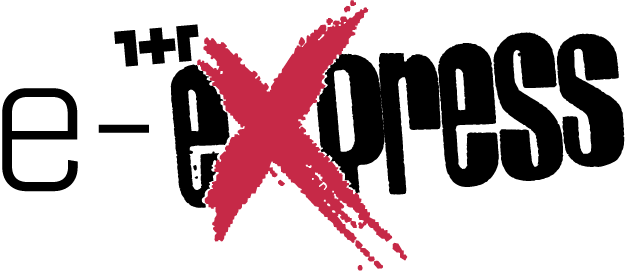In the second part of the series on populism, which is a major issue in the current political thinking and debates all over the world, two critical concepts, victim identity and the lumpenproletariat are the main subjects of examination.

Contemporary populism has imported from the East the knowledge that the best way to suppress the actually existing agents that make up the people (individuals, social classes, genders, ethnicities, etc.), but keep the fiction that ‘the People’ as a unified entity is in itself an agent, is to make a victim of it: not actual victims as individual entities, or as specific, definable groups (which most of the people already are), but as a unified whole, as an identity.[1]
In order to make something perfectly clear from the outset: victimhood is real. It is real not only as a personal/individual experience, but also as the various existences of social or cultural groups, classes, ethnicities, localities, sexual orientations, ideologies, skin colours, languages or even as dialects, accents or brogues. From time to time victims, as any (or any combination) of these groups, seek not only individual justice for their injuries, but also a change in the judicial, cultural and social framework to ameliorate and improve their conditions. If this search becomes a permanent mode of existence, as it was in the so-called ‘Orient’, where every subject is a victim vis-à-vis a ‘Primordial Father’, unchecked by any organisational structure or rule of law, they may (and usually do) coagulate into identities, defining their being as one (or a combination) of these victim positions. Thus they eventually become insensitive to the actual changes in their positions of victimhood, even when its conditions have been structurally altered or even do not exist anymore.
The victim identity, unlike the victim experience or position, already exists before you become a victim (or not), and makes it possible to identify with an imaginary victimhood, either merely imagined, or translated from the Real to the Imaginary. It is perfectly possible, therefore, if rare, to assume the identity of victimhood without ever becoming an actual victim.
When the Eastern ‘Avam’ becomes the model for the Western ‘People’, this borrowed definition of the concept of victimhood begins to possess the character of an identity rather than an actual experience, and in this sense it becomes something chosen. The position and the identity of the victim, therefore, represent two structures that are fundamentally different: the victim position is the outcome of an event; it is something that happens to you, it is real regardless of your attitude towards it, so the victim in this sense is an object. The victim identity, on the other hand, is independent of the event: you choose to identify with it, to belong to it.[2] The victim identity, unlike the victim experience or position, already exists before you become a victim (or not), and makes it possible to identify with an imaginary victimhood, either merely imagined, or translated from the Real to the Imaginary. The victim in this case is a subject, in the Foucauldian sense,[3] whose subjectification is rooted in its self-victimisation. It is perfectly possible, therefore, if rare, to assume the identity of victimhood without ever becoming an actual victim. According to Jodi Dean, ‘[c]ommunicative capitalism’s consumerism, personalization, and therapeutization create ideal discursive habitats for the thriving of the victim identity.’ (Dean, 7)
A victim identity, insofar as it leads to a demand for civil rights and a corresponding political struggle, is usually the inevitable outcome of a series of prolonged victim experiences. The same experiences may often lead (depending on the political/social/cultural milieu) to coerced or voluntary ghettoization, to construction and consolidation of subcultures. The problem begins when the political/social/cultural environment gradually changes, and eventually tends to obviate these experiences.
The victim identity, rightfully full of anger and resentment towards the system (and its supposed agents) that victimises it, sometimes overlooks this change, and insists on seeking revenge instead of justice, on blaming individuals and groups (often the wrong ones) instead of the system, and becomes self-righteous instead of rightful. Self-righteousness leads to an overpowering feeling of entitlement, and the victim identity coalesces into an entitled victim identity, an identity full of a ressentiment [4] no apology can soothe, no recompense can satisfy, no revenge can placate; an identity, in short, that demands only jouissance, something that is impossible to be given or received.
The contradictory situation of a social group that has long left the victim/subaltern position, but still trying to retain the victim identity, should make us suspect whether there is some kind of a perk, or, to use psychoanalytic terminology, a secondary benefit in this assumed ‘victimhood’. In contemporary Turkish politics, for instance, the AKP (the Justice and Development Party currently in power) has insistently defined itself within the auspices of the victim identity from the moment it appeared on the political scene. It did so as the ‘representative’ of the conservative Muslim majority –as the people, the nation, or the ummah, depending on which term is appropriate for the specific moment and to the existing structure of alliances— victimised for decades by the laicist/Europeanised Kemalist elite.
In contemporary Turkish politics, for instance, the AKP has insistently defined itself within the auspices of the victim identity from the moment it appeared on the political scene. It did so as the ‘representative’ of the conservative Muslim majority –as the people, the nation, or the ummah– victimised for decades by the laicist/Europeanised Kemalist elite.
After seventeen years in power, after almost all state institutions are conquered and/or transformed, and the Kemalist cultural/political domination is either demolished or taken in tow, it still constantly renews its claim on victimhood every time there is a need for a state of exception, which means, in the present global crisis of capitalism and neoliberalism, almost all the time.
So the real question becomes, what is this secondary benefit of the victim identity, that the individuals, social groups, strata, classes, or nations/nationalities, who have already abandoned that position and settled in the master/sovereign position, are so insistent on retaining it jealously? One of the answers I can suggest is this: because the victim identity (now we can read it as id-entity) gives us the opportunity to suspend our superego for a temporary period of time, providing a ready justification for all the evil we can do. Dean argues that,
Accompanying the presumed weakness of the victim is a taste for cruelty. In the United States, claims for the rights of victims have stimulated increases in the brutality of the criminal justice system. […] Neoliberalism’s inevitable losses are displaced from systematic problems in need of collective solutions and concentrated onto the fantastic image of the individual criminal to be imprisoned, punished, tortured, and killed. (Dean 2009, 6-7)
The young Israeli soldier, for instance, who deliberately fires on Palestinian kids with the intent to kill or maim, must have ‘turned off’ or suspended his superego for a temporary period. The excuse for this ‘turning off’ is the atrocities against his ancestors during the Holocaust, which are real enough. It does not bother him, however, that there is no logical or structural continuity or identity between the perpetrators of the Holocaust and the Palestinian kids;[5] because the victim identity (unlike the victim position) deals in absolutes: he has been wronged (not he, himself as a person, but in his identity of Jewishness), and somebody must pay, no matter who.
This is how any criticism of the Israeli government(s), political and/or public figures, policies and institutions, can be countered with the stock accusation of anti-Semitism, because any and all of these actual subjects are assimilated and absorbed within the imaginary universal of Jewishness: if you don’t approve of the actions of Netanyahu, or the Likud Party, or the Gaza policy of the Israeli Government, why, you must be anti-Semitic, because all these actual agents are made identical with an imaginary Jewishness by a sleight of hand somewhere along the way.
The victim identity (now we can read it as id-entity) gives us the opportunity to suspend our superego for a temporary period of time, providing a ready justification for all the evil we can do.
The fact, for instance, that POTUS Trump is an ardent supporter of the openly anti-Semitic alt-right white supremacists, does not prevent his critics to be also labelled ‘anti-Semitic’ when he supports the Israeli occupation of the West Bank, because in the populist imaginary there is no such thing as consistency: he can support the real enemies of ‘Jewishness’ all he likes, as long as he supports the actions of the present Israeli state (not an actual victim anymore but an agent of domination donning the cloak of an imaginary victim identity), because the former is just a universal which cannot be harmed. What about the real acts of violence and hate against real Jewish people (tangible, flesh and blood individuals) committed by white supremacists, one is bound to ask. Well, they can always be blamed, using a simple sleight of hand and allowing for some passage of time in this era of short memory, on ‘Radical Islam’!
When we look at the situation from the perspective of actual victims of the present situation, however, we will see that the picture does not change much: the Palestinian suicide bombers had felt that they are not responsible for the civilians they hurt, because they had acted as a part of an acquired, embraced identity of the victim, rather than from an actual position. More recently, the suicide bombers of ISIS, and the white supremacist/racist attackers on mosques, immigrants and even their own citizens whom they believe to be empowering these immigrants also feel the same way, although they are not actual victims anymore, but only assuming a universalised victim identity.[6]
Thus, their alibi is always ready: ‘Since I am the victim, what I do should always be justified!’ Here we observe a superego, no longer temporarily but permanently dismantled. Conscience becomes entirely ineffective towards the other, making its objectification absolute. Unfortunately, what has disappeared here is not merely the superego, but also the ego, the ‘Reality Principle’ whose primary purpose is self-preservation, since the act will end up in the disintegration of the self as well.

‘The People’ vs. ‘The Scum of the Earth’
I have tried so far to ascertain that the ‘people’ that populists constantly talk about is merely an abstract notion, without a concrete, tangible will of its own. In the parlance of contemporary populism, however, there is a small minority within this ‘people’ which is most vocal and visible due to its enormous affective presence, its insatiable hatred for the ‘elite’ and its constant claim on victimhood, that the populists (usually intentionally) mistake for the entirety of the ‘people’, which is probably one of the most misinformed and dangerous metonymies of the last two centuries:
The “dangerous class”, [lumpenproletariat] the social scum [Verfaulung], that passively rotting mass thrown off by the lowest layers of the old society, may, here and there, be swept into the movement by a proletarian revolution; its conditions of life, however, prepare it far more for the part of a bribed tool of reactionary intrigue. (Marx & Engels 1969)
Ideologically and politically this ‘dangerous class’ never exactly belonged to the working class anyway, and therefore never had any real hopes for a classless, egalitarian and free society. Its ideology is driven by revanchism, vindictive not only towards the actual ruling classes who own/control the means of production, but also towards the intellectuals, the ‘cultivated class’ who possess (or has access to) a certain degree of societal and cultural power, and the middle classes who are financially (albeit slightly) better off; in short, towards all those who ‘have’ while they ‘have not’.
The belief that this most exploited and most victimized section(s) of society will also be the most revolutionary, is simply untrue. There is no categorical causal relationship between being subversive or revolutionary, the will to transform, and being (or having been) exploited, persecuted, humiliated and ignored.
The almost-instinctual opportunism and cynicism of the members of the lumpenproletariat, however, makes it possible for them to forget their hostility towards the actual ruling class, against which they are totally helpless anyway, and divert all their wrath, their destructive energy, towards more accessible and vulnerable targets, the intellectuals and middle classes, and even towards the actual working classes which have a more legitimate and stable position in society.
They constantly feel victimized and that the world owes them, so anything they do (steal, cheat, rape, kill) is axiomatically justified.[7] They do not demand justice or equality, but only the same old regime with themselves as top dogs, with better cars, better homes, heaps of money and, unavoidably, beautiful women in great numbers (since the active elements in this class are predominantly male).
This class is also particularly prone to manipulation, because, being cynical in the extreme, they believe that they are manipulating everyone else, all the time. So any totalitarian leader worthy of his salt (Stalin being the epitome of such leaders) can manipulate this class, playing on their delusion of manipulating everyone, even occasionally pretending to be manipulated himself, like all good con-artists do.
The belief that this most exploited and most victimized section(s) of society will also be the most revolutionary, is simply untrue. There is no categorical causal relationship between being subversive or revolutionary, the will to transform, and being (or having been) exploited, persecuted, humiliated and ignored. All these latter can make you angry, spiteful, vengeful, or rebellious (also meek, submissive, sly and passive-aggressive), but not revolutionary.
Being revolutionary entails not only being wrathful at the existing state of affairs, but also an ability to imagine an alternative, better future. For some time, you may believe that a combination or coalition between the wrath of the ‘masses’ (in actuality, the blind hatred of the most vocal minority within the masses, of the lumpenproletariat) and the wise, informed imagination of a ‘leadership’ will do the trick; but unfortunately these two never ‘mix’.
It is possible, of course, that a ‘revolutionary leadership’ can temporarily channel and manipulate this hatred, this ‘explosive potential’, and for a time make use of it during a revolutionary epoch, in a period of upheaval. When the revolutionary wave is slackened, however, they will see that they have been the ones that were used. Between 1792 and 1796, for instance, the Jacobins believed that they were using the furious, rebellious potential of the ‘mob’ to further the cause of the revolution, when they themselves were puppets in the vise of that mob’s hatred.
The uncontrolled rage of these self-designated ‘victims’, which they do not fully comprehend themselves, turns them into a loaded weapon, which may be dangerous for its wielders as well. Their fundamental disposition towards readily allying with the ruling classes is true not only on the societal, but also on the individual level.
They ordered endless executions to satisfy that insatiable, vengeful desire, and eventually they themselves were also eliminated to make way for Napoleon Bonaparte. The problem with Jacobinism is not (only) that it is ethically detestable, but (also) that it is doomed to fail, to make room for the shrewd totalitarian leader who can successfully manipulate the lumpenproletariat, and through them, the ‘people’.
The uncontrolled rage of these self-designated ‘victims’, which they do not fully comprehend themselves, turns them into a loaded weapon, which may be dangerous for its wielders as well. Their fundamental disposition towards readily allying with the ruling classes is true not only on the societal, but also on the individual level. They have, for instance, no problem with male domination, but they cannot understand why supermodels and actresses they continually see on television are not theirs! So they issue themselves a license to rape. They want fast, expensive cars, and are so angry they do not have them, that they happily scratch the modest cars of middle-class people parked on the roadside; but as parking attendants and valets in super-expensive entertainment venues, they are willing to defend the expensive cars of the patrons with their lives in return for a chance to drive them for a couple of minutes.
They have no objection to injustice; they just want the injustice to be in their favour. They don’t question the magical power of money; they just don’t like the fact that they don’t have it, so they steal it. They see no harm in harassing Bohemian-looking people, long-haired, pierced and tattooed middle-class youth and girls wearing mini-skirts, but as bouncers at the doors of luxury nightclubs where much more exaggerated ‘other-bodies’ frequent, they eagerly serve to protect them. When they gang up to attack ‘others’, these gangs can often be guided or even coordinated by the state or ‘the deep state’, controlled and kept ready for the time when a versatile (meaning, not bothered by legalities) paramilitary force may be needed.
On the other hand, however, when they occasionally find a home in a ‘leftist’ or ‘revolutionary’ group, as pretend ‘victims’, their contagious id-evil[8] rapidly decays these ‘leftist’ or ‘revolutionary’ structures, especially in the last three decades when the basic ideological assumptions of ‘the left’ are daily challenged by the ‘fall’ of the ‘Socialist System’. Their allure for the ‘left’ is, according to Dean, twofold, offering it both the permanent justification and the political irresponsibility of pretend victimhood:
Shrinking the scope of political claims to those of victims needing recognition and redress also traps claimants in a double bind: to speak at all they have to demonstrate how they are harmed and vulnerable, how they are weak, inadequate, or suffering. They must speak as those who have lost, those who are losers. One who feels the political impulse to struggle, who is ready for a fight against injustice, is not injured enough to speak. For many leftists, the attraction of the position of the victim is thus double: one is always morally correct –for who can deny the suffering of the victim? –and never politically responsible –for victims are too weak and injured to govern. (Dean, 5-6)
Once they successfully permeate a ‘leftist’ body, however, they rapidly give rise to violence as a goal in and for itself, and in a short while, they begin to target other ‘leftists’ and ‘revolutionaries’, instead of the the ruling classes, and consequently this short-lived cooperation ends in various suicidal acts. The most fundamental problem with id-evil is that it must eventually destroy the ‘self’ that bears it. We shouldn’t console ourselves, however, with the knowledge that they will self-destruct anyway, because during this self-destruction, they will also lay waste to everything that comes near them.
Ressentiment itself, if it should appear in the noble man, consummates and exhausts itself in an immediate reaction, and therefore does not poison: on the other hand, it fails to appear at all on countless occasions on which it inevitably appears in the weak and impotent.
To be incapable of taking one’s enemies, one’s accidents, even one’s misdeeds seriously for very long—that is the sign of strong, full natures in whom there is an excess of the power to form, to mold, to recuperate and to forget […]’ (Nietzsche 1989, Genealogy of Morals: 1/10)
“They are aware that this fact puts them at a structural disadvantage, as genetically deficient, and forces them into the role of the victim. Being an Incel, therefore, means adamantly defining yourself as ‘the Scum of the Earth’ and embedding yourself within that definition without fail.” (Krüger 2019)
We can read Žižek’s argument here (with reference to the issue at hand) as the insatiable thirst of the Lumpenproletariat for the ‘things’, objects of desire that other classes have and it has not. Since it doesn’t have them, they must have been ‘snatched away’ from it, so it has every right to try and get them back; it has a ‘righteous anger’ towards these classes whom it sees to have a ‘privileged relationship to the object’. Since the ruling classes are not going to grant its desires at the drop of a hat, however, it directs its rage towards the other, easier classes, the middle-classes, the working-classes and the intellectual strata, and sees no harm in conspiring with the ruling classes against those classes ‘in the middle’. This is the root of the ‘conspiracy of evil’ that arises from the libidinal economy of most class societies, and it becomes the wellspring of all dirty deals between this class and the more Machiavellian elements of the ruling class(es), from Caesarism to contemporary populism.





